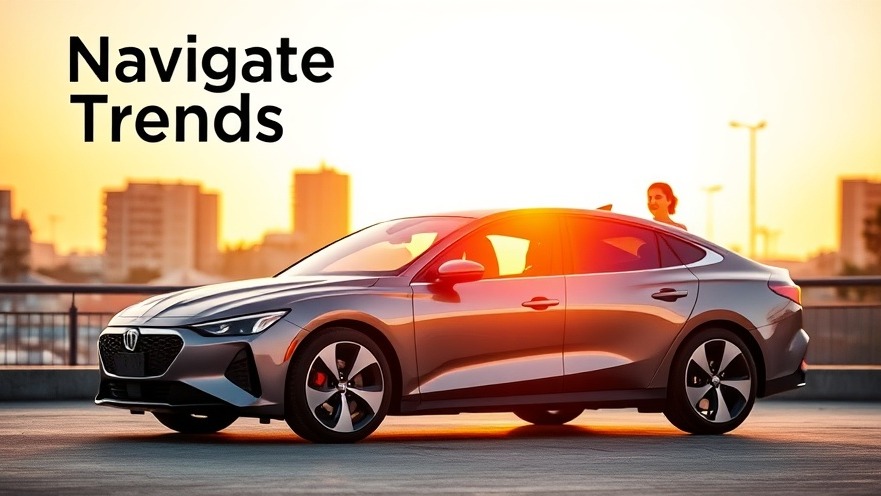
Understanding the Shift in Automotive Trends
In the world of cars, technology is evolving faster than ever before. But not all changes are beneficial for consumers. Scotty Kilmer's recent discussion sheds light on some concerning trends that automobile buyers should be wary of. As electric vehicles gain traction, consumers are increasingly opting for hybrids over fully electric models, signaling a shift in preferences shaped by performance and reliability.
In 'A Sad Day for Scotty Kilmer Viewers', the discussion dives into recent trends in the automotive industry, exploring key insights that sparked deeper analysis on our end.
Why Hybrid Cars Are Gaining Popularity
According to Scotty, hybrid vehicles like the Toyota Camry and RAV4 are proving to be crowd favorites. They're known for their impressive gas mileage and longevity, characteristics that many buyers prioritize when making a decision. In stark contrast, fully electric cars, especially costly options like Tesla, can often feel complex and overwhelming to users. As the current consumer sentiment suggests, practicality beats high-tech complexity.
The Concerns Encountered with Turbocharged Engines
One alarming trend is the shift towards turbocharged engines, particularly in models like the Toyota Tacoma. Turbo engines are designed to deliver greater power with less displacement, but they also introduce durability concerns. Kilmer points out that these engines tend to wear out faster due to the significant pressure they operate under. This contrasts with older models that offered naturally aspirated engines, providing consumers with long-term reliability.
Technology vs. Simplicity: The Vehicle Features Debate
Among the myriad of features in modern vehicles, the over-reliance on digital screens has raised eyebrows. Many drivers find themselves frustrated as essential functions become buried under screens that can distract rather than enhance driving. Kilmer emphasizes that traditional knobs and buttons enhance user experience by providing tactile feedback that modern alternatives fail to match. Manufacturers like Volkswagen are even reverting back to conventional interfaces due to consumer demand for simplicity.
Impacts of Manufacturer Decisions on Vehicle Reliability
As manufacturers face tighter regulations to produce more efficient vehicles, there's a concerning trend towards planned obsolescence in the automotive industry. This practice is evident in how vehicles are built today, sacrificing long-term reliability for short-term profits. The absence of spare tires, replaced instead with temporary kits, raises the question: are we compromising safety and reliability for cost savings?
The Importance of Consumer Choices
Kilmer advocates for more informed consumer choices, suggesting that buyers hold manufacturers accountable for their production decisions. By choosing non-turbo, traditionally-built cars and vehicles that prioritize user interface clarity, consumers can send a message to manufacturers about their preferences. If enough buyers demand simplicity in cars, it could lead to manufacturers adjusting their strategies.
Concluding Thoughts
As the automotive industry continues to navigate these rapid changes, consumer influence will play a vital role in shaping its future. By staying informed and re-evaluating our preferences, we can encourage manufacturers to focus on durability and simplicity without unnecessary complexity. Remember, your vehicle should be an asset, not a source of frustration!
 Add Row
Add Row  Add
Add 




Write A Comment